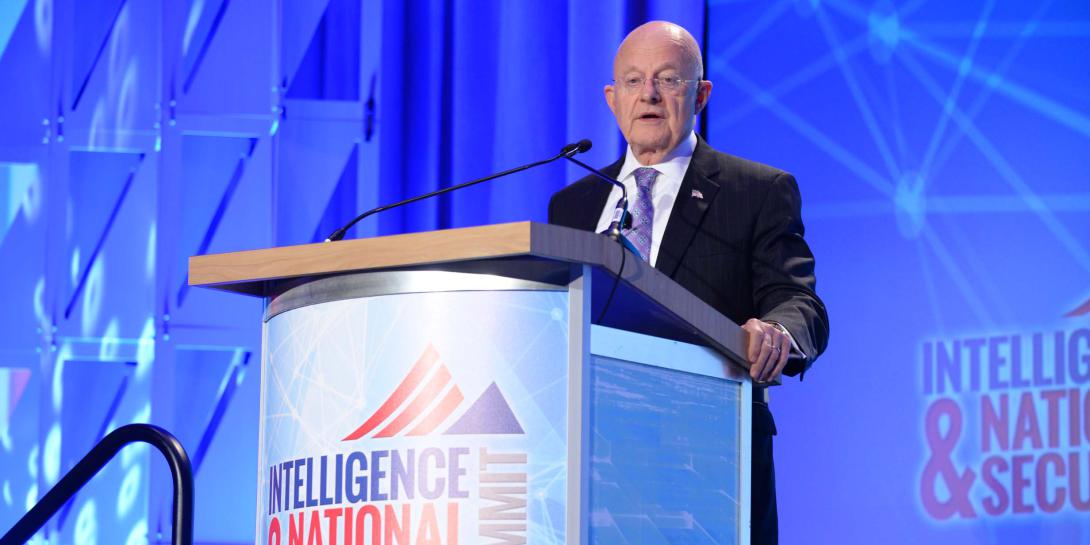DNI Warns of Continued Troubled Cyber Wars
Cybersecurity will remain as much of a challenge for the next administration as it has been for the current White House, especially in light of the constant barrage of cyber attacks from nation states, Director of National Intelligence James Clapper said Wednesday at the Intelligence & National Security Summit.
Cybersecurity will remain as much of a challenge for the next administration as it has been for the current White House, especially in light of the constant barrage of cyber attacks from nation states, Director of National Intelligence James Clapper said Wednesday.
“The Russians hack our systems all the time, not just government but corporate and personal systems,” Clapper said on the inaugural day of at the Intelligence & National Security Summit (INSS) in Washington, D.C. The two-day conference, sponsored by AFCEA International and the Intelligence and National Security Alliance (INSA), runs through Thursday.
But for all the mounting global threats—to include those from China and North Korea—no matter who becomes the next president, "it will be OK," Clapper said.
The next few months will be crucial for the United States as the nation prepares to elect a new president. “Any period of transition is a very vulnerable time for the country,” said Clapper, who plans to be “rolling out the door in the next four months” after six years as DNI.
This presidential transition happens “in a particularly difficult time as we’re facing a most complex and diverse array of issues that I’ve seen,” Clapper said.
Two-thirds of the nations around the globe are at some risk of instability, from unrest hitting many African nations to the constant battle against terrorism and extremist groups, threats from China and North Korea, and the reemergence of Russian aggression.
Add to the issue list the disruptive and unpredictable nature of emerging technologies, all of which can either make lives easier or introduce a new menu of threats and vulnerabilities.
Briefly, Clapper touched on the complexity of fighting terrorist groups, with Islamic State of Iraq and the Levant (ISIL) commanding most of the current focus. ISIL eventually will be suppressed, but the fight will spawn new extremist groups, Clapper warned. The nation faces a "perpetual state of suppression for some time to come.”
Counterterrorism efforts take a lot of resources, both human and financial, something Clapper said he finds troubling. The toll of expending efforts and money to go after high value, top-level targets is not sustainable in an enduring war. In the end, it’s the "non-top threats that leap up and bite you," Clapper said.
Today, there is an unprecedented degree of information sharing with foreign partners, especially on the issue of counterterrorism, Clapper said.
When asked how he responds to criticism that the intelligence community overly classifies information, he answered: “We’re guilty.” But it’s a fair criticism and one that the community is restructuring to deliver more transparency, Clapper said.
As if the challenges of rogue nation states, global instability and counterterrorism woes were not enough, add to the mix the problems of climate change, which Clapper said is going to be an “underpinning” for a lot of national security issues.





Comments